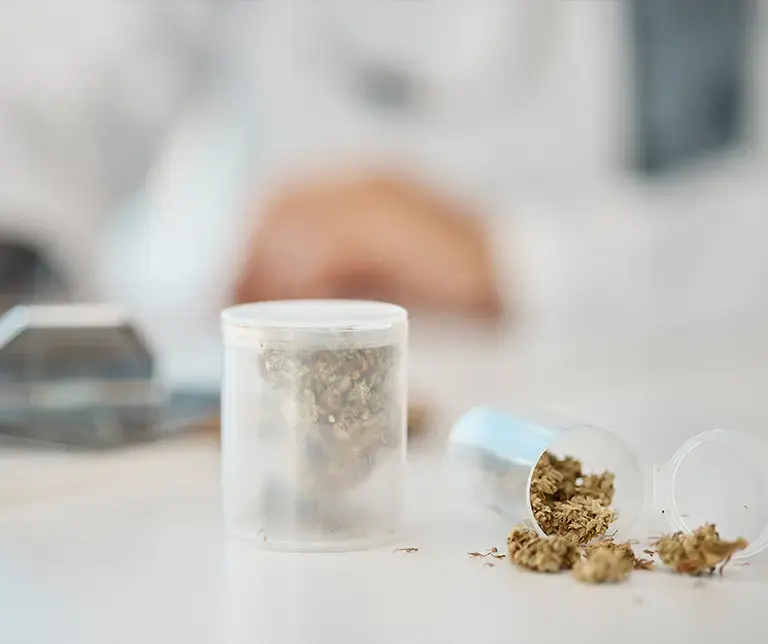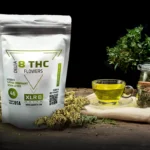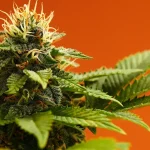The Rule of Thumb: Start Low, Go Slow.
The safest approach in determining one’s correct CBD dosage is by following the “Start Low, Go Slow” principle.
Gradual Progression is Key
For newcomers in the CBD scene, the recommended starting dose would be around 5mg per day. By starting conservatively, a newbie can gauge how the body responds to cannabidiol without overwhelming the body system.
If this is your route, then remember that patience is key. CBD’s effects may take some time to manifest fully.
Finding that Sweet Spot for Your CBD Dosage
Now that you have started at the lowest possible dosage, around 5mg per day, you may gradually increase the dose. Increments of 5mg per week may work for you.
Just remember to monitor how your body responds to this increase in dosage. Stop increasing when you achieve the desired therapeutic outcome.
Consultation and Monitoring
XLR8 is not a medical website. Although the outlined recommendations provide a helpful starting reference for finding your suitable dosage, seeking guidance from qualified healthcare professionals remains paramount. This ensures tailored advice aligned with your individual health condition and wellness objectives.
CBD Dosage and Your Weight
How much you weigh is one significant factor to consider in determining your proper CBD dosage. Of course, individual responses may still vary, but we can come up with a general calculation based on weight.
Weight-Based Dosage Computation
Based on the widely accepted formula, 1 milligram of CBD corresponds to 10 pounds of body weight. Using this ratio, you can simply divide your current body weight by ten to determine your daily recommended CBD dose in milligrams.
So the general formula would look like this,
Your weight in pounds ÷ 10 = Your daily dose in milligrams
For instance, your current weight is 150 pounds, and following the formula above, the baseline dose for you would be around 15mg of CBD per day.
Other factors that affect individual CBD dosage:
- CBD usage: Your goal of consuming CBD products will affect the dosage that you need. If you aim to relieve a particular discomfort, you might require higher doses of CBD.
- CBD forms: There are several CBD forms available today and it can also affect the proper dose for you. A CBD capsule is pre-dosed with a specific quantity of cannabidiol while for CBD oils you can control the volume of CBD that you may ingest.
- Ongoing medications: Specific medications that you are taking may affect the effectiveness of CBD in the human body. Seek advice from a healthcare professional if this factor applies to you.
Weight in pounds | Daily Dose | |||
Low | Daily Wellness | Moderate Dosage | High Dosage (As needed) | |
<100 | 2 – 5 mg | 6 – 8 mg | 8 – 15 mg | 20 mg above |
100 – 150 | 6 – 12 mg | 13 – 20 mg | 21 – 30 mg | 31 mg above |
150 – 200 | 13 – 25 mg | 26 – 45 mg | 46 – 65 mg | 66 mg above |
CBD Oil Dosage Guideline
The chart above is just a general guide for consuming CBD oil. We want to emphasize that navigating CBD oil dosage can be a journey of self-discovery and adjustment.
Oftentimes, finding your optimal dosage requires a personalized approach based on your health goals and individual response.
Based on experts’ opinions, there is still vast variability in the CBD dosage that applies to individuals. While certain individuals may experience relief with conservative doses, others might necessitate substantially higher quantities. This emphasizes the significance of trial and error and attentively heeding your body’s responses to ascertain the optimal regimen for your needs.
Understanding CBD Oil in Milligrams per Milliliter
CBD brands typically indicate the total amount of CBD in milligrams (mg) on their product packaging. However, the serving size per milliliter (ml) may not always be specified.
XLR8 CBD drops, for example, provide the CBD mg serving size per full dropper on its label for easy reference.
To calculate the concentration of CBD in milligrams per milliliter (mg/ml) in a CBD oil product, use the following formula:
CBD in mg ÷ Bottle size in ml = CBD in mg per ml
For instance, if a bottle contains 1000 mg of CBD and is 30 ml in size, the CBD concentration per milliliter would be:
1000 𝑚𝑔 ÷ 30 𝑚𝑙 = 33.33𝑚g/𝑚𝑙
We applied the above formula to determine the amount of CBD per drop of oil in our CBD oil products:
CBD Gummies Dosage Guideline
CBD-infused gummy products are formulated with a designated quantity of CBD. Regarding dosage, it’s generally advised that individuals with higher body weights require proportionately higher CBD dosages.
Certain health proponents propose an initial dosage guideline for CBD gummies at 10 mg per 10 pounds of body weight. Thus, for instance, an individual weighing 150 pounds would commence with a dosage of 15 mg of CBD gummy.
Suppose one gummy has 30mg of CBD; you can split it in half to attain the recommended 15mg dosage.
CBD Capsules Dosage Guideline
Like CBD gummies, all capsules come with a pre-determined CBD dosage. The best approach here is to begin with the lowest possible dosage. Then, gradually increase your intake until you experience the desired result.
CBD Vapes Dosage Guideline
For CBD inhalable products such as vapes and carts, there is no one-size-fits-all dosage. The average recommended dosage for vape would be 12 to 18 mg per day.
1 puff of CBD vape may contain 2 mg of CBD. Following the recommended starting dosage of 12 to 18 mg a day, beginners may take 6 to 9 puffs. Suppose you are vaping CBD to address certain conditions, the dosage might become higher.
CBD Bioavailability
CBD bioavailability describes how much CBD is absorbed by the bloodstream and eventually used by the body. Because there are different ways to administer CBD, its bioavailability varies, too.
Vaping (40 – 50% Bioavailability)
Because vaping has the highest bioavailability, this could mean that it is efficient in providing rapid onset of effects. However, these effects may also diminish quickly.
Tinctures (20 – 30% Bioavailability)
If placed under the tongue, CBD tinctures or oils offer a bioavailability range of 20% to 30%. These CBD extracts are versatile because you can incorporate them into your desired foods and drinks.
Topicals (35 – 40% Bioavailability)
These topicals may include CBD lotions, salves, and creams. They are popular for providing targeted relief to areas of discomfort, such as joint and muscle pain.
Capsules and Edibles (5 – 15% Bioavailability)
Edibles and capsules infused with CBD have the lowest bioavailability percentage. This is because the cannabinoid will have to go through the digestive system first to be metabolized by the liver. However, these CBD forms provide long-lasting effects as compared with CBD vapes.
Frequently Asked Questions
Can you overdose on CBD?
CBD may lead to overdosing, wherein there is too much CBD present that the body can handle. This fact is a compelling reason why you should start with a low dosage of CBD in order not to be guilty of overconsumption.
Does CBD result in side effects?
When you take higher doses of CBD certain side effects may occur, such as dry mouth, nausea, diarrhea, upset stomach, drowsiness, lightheadedness, and general disorientation. However, we have not yet received reports of death due to CBD overdose. Nevertheless, consult first a medical professional if you plan on incorporating CBD into your daily routine.
Can CBD make you high?
CBD is a non-psychoactive cannabinoid. It should not make you high. Today, some CBD products contain trace amounts of THC, which is a psychoactive compound. If you plan on habitually taking such products, be aware that they may lead to a certain degree of intoxication.
Will you fail a drug test if you consume CBD products?
Drug tests are designed to detect the presence of THC. Since CBD is not THC, you should be able to test negative for a drug test.
What are the potential benefits of CBD?
CBD’s known benefits include pain relief, improved sleep, and enhanced mood.




